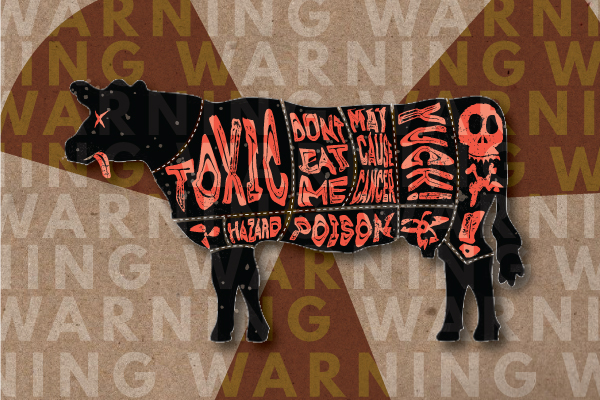The World Health Organization (WHO) released a report on Oct. 26 that said processed meats could be carcinogenic.
In the report, WHO said eating 50 grams of processed meat a day could increase a person’s chance of getting cancer by 18 percent. Fifty grams of meat is the equivalent of one to two slices of deli meat, two pieces of bacon or one hot dog.
WHO released the report after consulting with the International Agency for Research on Cancer (IARC). After conducting more than 800 studies on the topic over the course of several decades, the IARC discovered the possible cancerous effects of processed meat.
According to NBC News, the report defined processed meat as “meat that has been transformed through salting, curing, fermentation, smoking, or other processes to enhance flavor or improve preservation. Most processed meats contain pork or beef, but might also contain other red meats, poultry, offal (eg, liver), or meat byproducts such as blood.”
Karen Kelley, assistant professor of nursing, said these findings are not new and have been around for decades.
“That recommendation has been out for years,” Kelley said. “There is a known association of a somewhat increase in colorectal cancer with a high consumption of processed meats. That is not news. If you look at American cancer guidelines, it’s been there for years.”
Kelley also said people should not be alarmed by the 18 percent statistic. She said the risk for getting any kind of cancer varies from person to person, and also depends on a number of factors such as family history.
“The 18 percent is a relative risk number, which is different than an absolute risk,” Kelley said. “For example, if you have an absolute risk of two percent of having a heart attack in 10 years, that is your risk. If you do something that increases that risk by 50 percent, that just means you have a four percent risk. So (the 18 percent) is a relative number, not an absolute number.”
According to Associate Dean of the College of Nursing Greg Brooks, the WHO report had intent of making people more aware of what they are consuming on a day-to-day basis. He said people should be focusing on how they can improve their diets.
“We need to do a better job of balancing things,” Brooks said. “As Americans, we have gone up in our serving sizes, because we want more for the almighty dollar. We want more, pay less, for cheaper foods. Too much processed meats in the diet are affecting that. The report indicated that if you’re eating that much processed meat a day, it’s going to have implications, because of the chemicals that are in those foods. Adding fruits and vegetables is what we need to be doing to our diet overall.”
Brooks also said people should be concerned about more than just getting cancer from poor eating habits.
“Cancer is one thing to worry about, but there are things that are more common that we discount just because they aren’t associated with cancer directly,” Brooks said. “Obesity, type two diabetes, high blood pressure, hyperlipidemia — those things are killing Americans, too. I think we focus more on cancer because that’s the big C word. But fast food in America is hurting us, too.”
To read the full report on how processed meats are correlated with cancer, go to www.iarc.fr/
